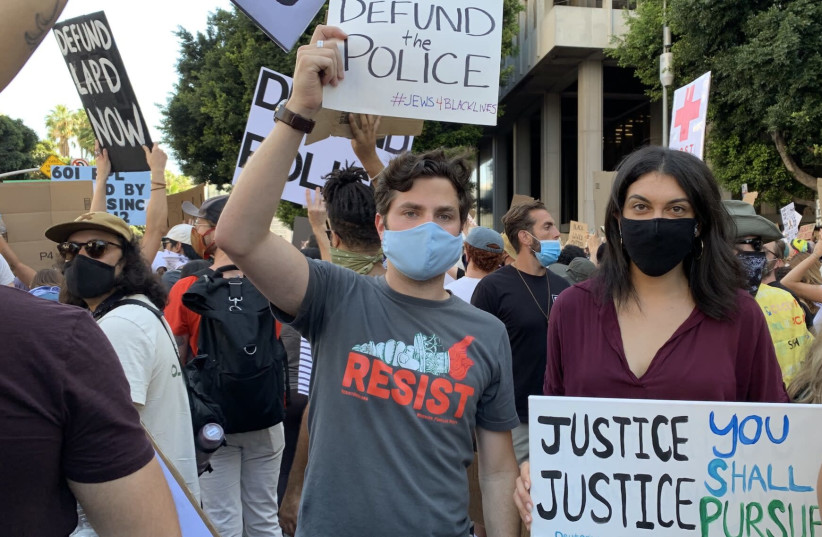The trial of a policeman who wrongfully shot and killed Palestinian special needs student Iyad al-Halak two years ago, continued Monday in Jerusalem District Court.
The hearing witnessed verbal and almost physical confrontations between the policeman, whose identity was being shielded with an opaque divider, and the family of Halak, who tried to get close enough to look him in the eye.
Court security intervened to calm the two sides.
Technically, the hearing related to resolving disagreements between the prosecution and the defense about which items of evidence must be shared before the trial.
But the defense hammered away at its theme that the policeman’s fate has been politicized and many facts in his favor have been ignored by the media.

The Police Investigations Department filed an indictment against the policeman in June 2021 for second-degree murder. His name is under a gag order.
in June 2021 for second degree murder - something which had been hinted to as a possibility by PID as early as October 2020.
The shooting of Halak led to massive criticism of the police, with even then-prime minister Benjamin Netanyahu admitting that it was a mistake.
Whether the PID would indict the police officer who killed Halak for murder, manslaughter or negligent homicide – or even close the case – was an open question for many months, which rested on how reasonable or unreasonable it was for the officer to believe that the unarmed Jerusalem resident was a threat.
The second-degree murder charge can carry up to 12 years in prison.
Halak was shot dead after fleeing into a garbage disposal room, bolstering the idea that the shooting was far more than a mere negligent mistake.
According to the indictment, because of his special needs, Halak had exhibited suspicious body language which seemed to justify some kind of law enforcement action, given that the officers did not know he had special needs.
Until the indictment was issued there was speculation that the policeman might be treated leniently since the police unit that first spotted Halak identified him as a terrorist – and because the policeman saw his commander try to shoot at Halak while chasing him.
WHEN HALAK fled the Lion’s Gate area, multiple groups of police followed him with the understanding that he had been flagged as a terrorist by another officer over the police communications system.
When the senior police officer arrived at the garbage room and saw the other junior police officer (who eventually killed Halak and was charged) standing over Halak, a Justice Ministry statement in October 2020 said that he ordered the junior officer twice not to fire.
The statement said that the shooter ignored both orders, one coming before the first shot, and one coming between the first and the second shot.
The indictment was vaguer about the first shot, but clearly indicated that the second shot, which was the fatal shot, was completely unjustified.
The indicted police officer has said he did not hear any order to hold his fire.
In addition, according to his lead defense lawyer Lt.-Col. (res.) Efrat Nahmany-Bar, none of the other six bystanders in the area of the shooting heard any order to hold his fire.
He said he had heard that Halak was a terrorist and that he was armed. Furthermore, he had seen his commander fire at him and miss as they were chasing him down the street.
Finally, the policeman believed that Halak’s suspicious movements after the first shot indicated he was making a move to pull out a weapon.
Nahmany-Bar said that there was no way for the policeman to know that Halak was a special needs individual.
